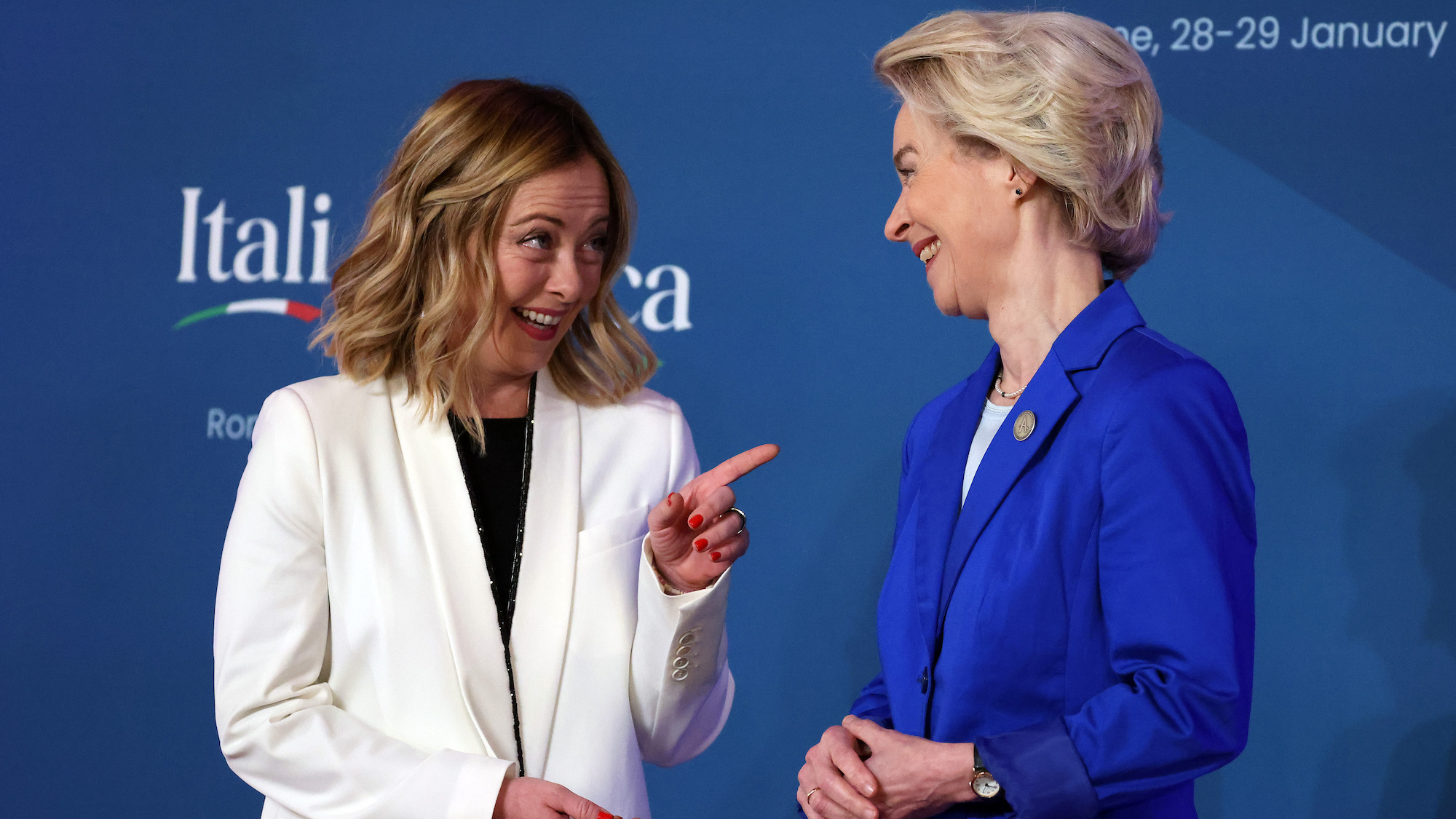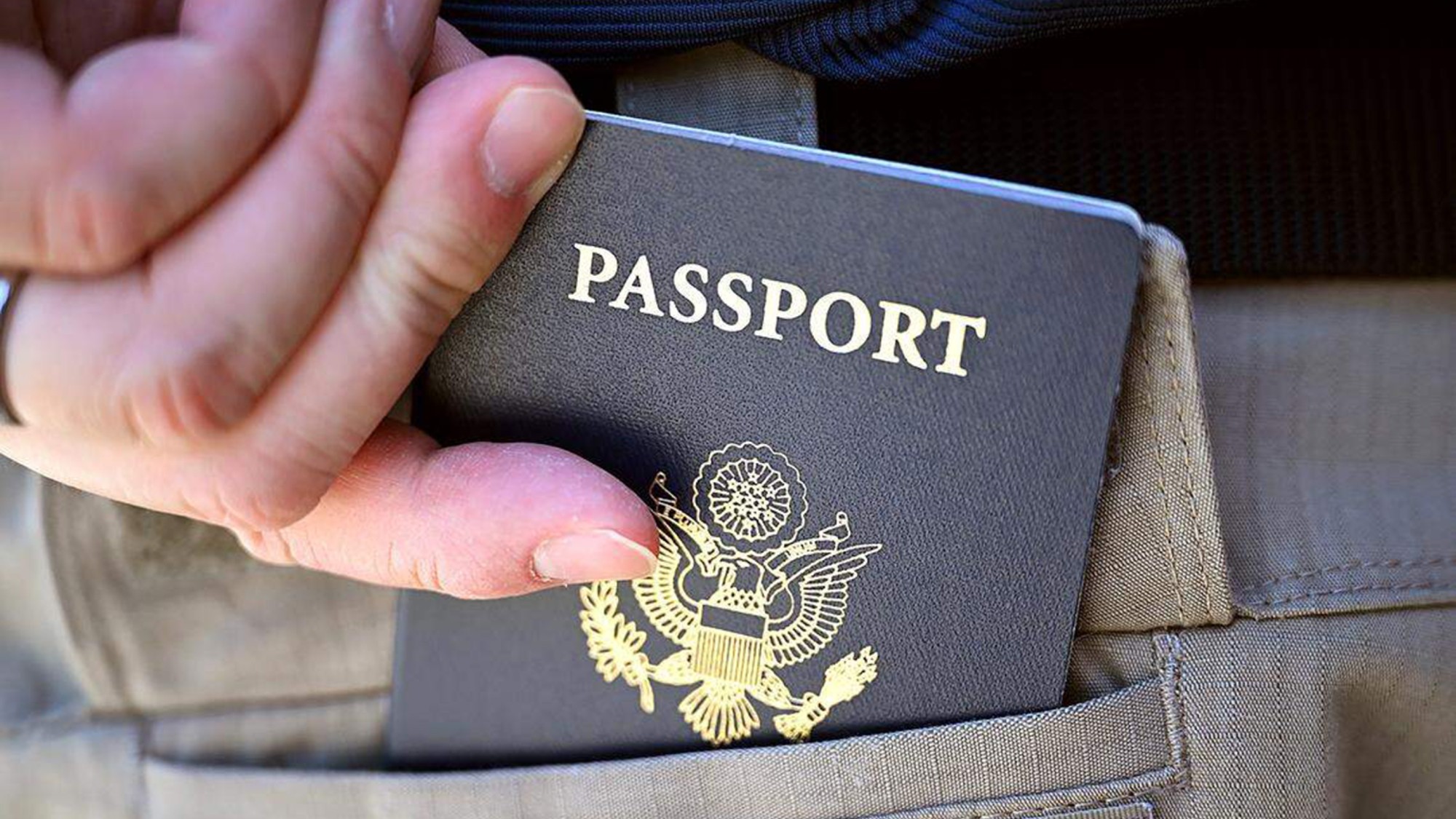Five things to watch out for in the European elections
The far-right looks set to make significant gains in Brussels parliament

A free daily email with the biggest news stories of the day – and the best features from TheWeek.com
You are now subscribed
Your newsletter sign-up was successful
On 6 June 373 million people from 27 countries will go to the polls in the European Parliament elections with the effects of the pandemic, the war in Ukraine and an increase in illegal migration high up in voters' minds.
The situation on the continent means many voters will shift away from liberal and centre-left parties, with the "centre-right, ultraconservative and far-right" parties "leading the polls in the main EU countries", said Euronews.
Here are five things to look out for in the upcoming elections.
The Week
Escape your echo chamber. Get the facts behind the news, plus analysis from multiple perspectives.

Sign up for The Week's Free Newsletters
From our morning news briefing to a weekly Good News Newsletter, get the best of The Week delivered directly to your inbox.
From our morning news briefing to a weekly Good News Newsletter, get the best of The Week delivered directly to your inbox.
A shift to the right
There is strong evidence that right-wing parties will enjoy much success at the polls, particularly with far-right parties having already "won elections in Italy and the Netherlands" and currently leading "the polls in France, Austria and Belgium", said the BBC. Some analysts suggest they could gain "more than three in every 10 votes" and become a "powerful force" in the European Parliament.
However, their success once elected could require cooperation between the two main right-wing groups of parties, the Identity and Democracy (ID) group and the European Conservatives and Reformists (ECR). If they can "overcome their internal differences", they could "form a powerful bloc" that could have significant influence in parliament.
Giorgia Meloni
Much of the focus on potential alliances after the elections is centred on Italian prime minister Giorgia Meloni, "Europe’s most prominent far-right leader", said Politico.
Meloni's Brothers of Italy party is expected to do well in the elections, and in anticipation the French far-right leader Marine Le Pen has already made offers to "form a right-wing super group" in the European Parliament between Le Pen's ID group and Meloni's ECR.
A free daily email with the biggest news stories of the day – and the best features from TheWeek.com
But the Italian is also concerning European Commission President Ursula von der Leyen. An alliance between Le Pen and Meloni's groups would be "less than ideal" for Von der Leyen's centre-right European People's Party (EPP), who are expected to win the most seats again.
The EPP has not "ruled out a coalition" with Meloni, but the Italian prime minister has so far kept "her cards close to her chest" and has "left all options on the table among parties on the right", having found herself in a position of considerable strategic importance.
The youth vote
The 2019 elections saw a 25-year high turnout of 50.6%, largely driven by "an increase in voting among young people", said The Guardian. Young voters are still less likely to turn out than older generations, however, and the EU has launched campaigns to try to "mobilise young voters".
But a higher turnout among the younger generation does not necessarily spell greater success for liberal parties or the centre-left, nor "support for the European project or flagship policies". Instead, many young voters are "veering toward newer parties, which include far-right platforms", said Politico. This was evidenced by results in the Netherlands and Portugal, where anti-immigration campaigns played on young people's housing and "quality-of-life concerns".
That could play out similarly in the European elections, although the youth vote still tilts towards the left in some countries, such as Italy.
Left-wing splits
While the left is looking likely to lose influence in the European Parliament, there are some who are attempting to form alliances to "snatch populist votes" away from the right, said Euronews.
The "rising 'left-conservative'" German party Alliance Sahra Wagenknecht (BSW) could become the "largest delegation to the left of the Greens" after the elections, said Euractiv. The party has already said it has "rallied enough partners to launch a new left-wing group".
If true, that is likely to cause significant splits on the left of parliament, with the BSW's "ideological positioning" seen as "controversial" among some established parties, which view it as right-leaning.
A number of "leading left-wing parties" have already "ruled out alliances" with far-right parties in anticipation of significant gains in the elections by "hardline nationalists", said The Guardian.
Politically weakened leaders
As a "new cast of European leaders is looking to step up as power brokers", some of those established in power may be seeing the beginning of the end of their influence, said Politico. French president Emmanuel Macron and German chancellor Olaf Scholz are looking "politically weakened" domestically already, and the chance that the "election could be a rout" will only exacerbate their positions.
The failure of the "Franco-German engine" could also have an impact on the EU's "top jobs", with Macron and Scholz yet to align on who they are backing for the European Commission president. Even when they do "manage to see eye-to-eye", they struggle to "have others follow" their lead and poor election results will only make it clearer that "Europe isn't sure these two should be in charge anymore".
Richard Windsor is a freelance writer for The Week Digital. He began his journalism career writing about politics and sport while studying at the University of Southampton. He then worked across various football publications before specialising in cycling for almost nine years, covering major races including the Tour de France and interviewing some of the sport’s top riders. He led Cycling Weekly’s digital platforms as editor for seven of those years, helping to transform the publication into the UK’s largest cycling website. He now works as a freelance writer, editor and consultant.
-
 Political cartoons for February 15
Political cartoons for February 15Cartoons Sunday's political cartoons include political ventriloquism, Europe in the middle, and more
-
 The broken water companies failing England and Wales
The broken water companies failing England and WalesExplainer With rising bills, deteriorating river health and a lack of investment, regulators face an uphill battle to stabilise the industry
-
 A thrilling foodie city in northern Japan
A thrilling foodie city in northern JapanThe Week Recommends The food scene here is ‘unspoilt’ and ‘fun’
-
 Vietnam’s ‘balancing act’ with the US, China and Europe
Vietnam’s ‘balancing act’ with the US, China and EuropeIn the Spotlight Despite decades of ‘steadily improving relations’, Hanoi is still ‘deeply suspicious’ of the US as it tries to ‘diversify’ its options
-
 How ‘Manchesterism’ could change the UK
How ‘Manchesterism’ could change the UKThe Explainer The idea involves shifting a centralized government to more local powers
-
 Does standing up to Trump help world leaders at home?
Does standing up to Trump help world leaders at home?Today’s Big Question Mark Carney’s approval ratings have ‘soared to new highs’ following his Davos speech but other world leaders may not benefit in the same way
-
 Le Pen back in the dock: the trial that’s shaking France
Le Pen back in the dock: the trial that’s shaking FranceIn the Spotlight Appealing her four-year conviction for embezzlement, the Rassemblement National leader faces an uncertain political future, whatever the result
-
 ‘Dark woke’: what it means and how it might help Democrats
‘Dark woke’: what it means and how it might help DemocratsThe Explainer Some Democrats are embracing crasser rhetoric, respectability be damned
-
 San Francisco tackles affordability problems with free child care
San Francisco tackles affordability problems with free child careThe Explainer The free child care will be offered to thousands of families in the city
-
 The Mint’s 250th anniversary coins face a whitewashing controversy
The Mint’s 250th anniversary coins face a whitewashing controversyThe Explainer The designs omitted several notable moments for civil rights and women’s rights
-
 US citizens are carrying passports amid ICE fears
US citizens are carrying passports amid ICE fearsThe Explainer ‘You do what you have to do to avoid problems,’ one person told The Guardian